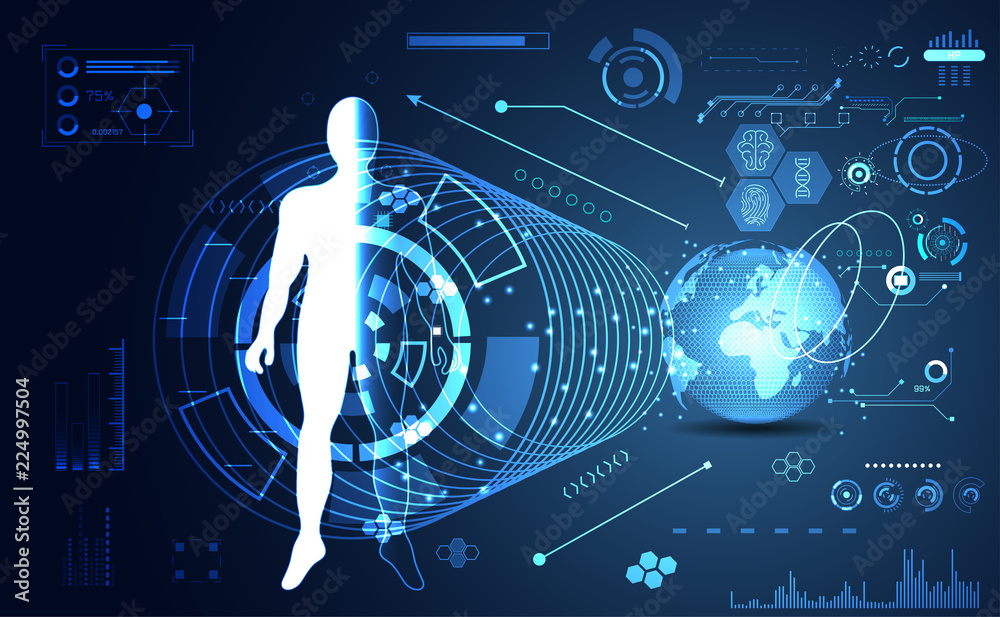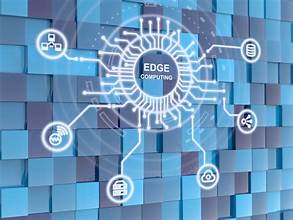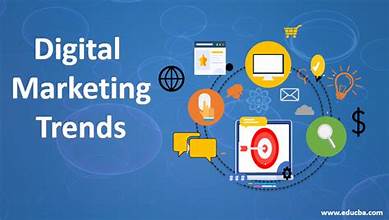The Next Big Thing: Future Prospects in Information Technology 2025

In the fast-paced world of Future Prospects in Information Technology (IT), new trends and innovations constantly emerge, transforming the way we live and work. But what’s on the horizon? What can we expect to shape the future of IT? Let’s dive into the future prospects in IT and explore the next big thing that’s set to revolutionize our lives.
1. Artificial Intelligence and Machine Learning
Artificial Intelligence (AI) and Machine Learning (ML) have moved beyond being mere buzzwords; they now lead the way in technological advancement.Imagine a world where machines can learn, adapt, and make decisions almost like humans. AI and ML are already making this possible. From personalized recommendations on streaming platforms to autonomous vehicles, AI and ML are changing the game.
The Future Prospects in Information Technology holds even more promise. Think about AI-driven healthcare that can diagnose diseases with unprecedented accuracy or AI in education, providing personalized learning experiences for students.The opportunities are boundless and extraordinarily thrilling.
2. Quantum Computing

Quantum computing is like something out of a science fiction novel. Traditional computers use bits to process information, but quantum computers use qubits, which can exist in multiple states simultaneously. This makes quantum computers exponentially more powerful than today’s supercomputers.
Imagine tackling intricate problems within seconds, tasks that would require traditional computers millennia to complete. Quantum computing has the potential to revolutionize fields like cryptography, materials science, and drug discovery. It’s not just the next big thing; it could be the biggest thing ever.
3. Blockchain Beyond Cryptocurrencies
When you hear “blockchain,” you might think of cryptocurrencies like Bitcoin. But blockchain Future Prospects in Information Technology is much more than digital currencies. It’s a secure, decentralized way to record and verify transactions. This has huge implications for industries beyond finance.
For example, in supply chain management, blockchain can provide transparency and traceability, ensuring products are sourced ethically and sustainably. In healthcare, it can secure patient records, making them accessible only to authorized individuals. The future of blockchain is bright and boundless.
4. The Internet of Things (IoT) Expansion
The Internet of Things (IoT) is all about connecting devices to the internet and to each other. This interconnected web of devices can communicate, collect, and share data, making our lives more convenient and efficient.
In the future, IoT will expand even further. Imagine smart cities where everything from traffic lights to garbage bins is interconnected, optimizing urban living. In agriculture, IoT can monitor soil conditions and crop health, leading to better yields and sustainable farming. The expansion of IoT is set to touch every aspect of our lives.
5. 5G and Beyond

5G technology is already here, bringing faster internet speeds and more reliable connections. But what’s next? The future lies in 6G and beyond. These advancements will enable unprecedented connectivity and pave the way for innovations we can only dream of today.
Think of real-time augmented reality experiences, ultra-reliable low-latency communications for autonomous vehicles, and even more robust IoT ecosystems. The future of connectivity is incredibly exciting, promising a world that’s more connected than ever before.
6. Cybersecurity Advancements

As technology progresses, the accompanying threats evolve as well. Cybersecurity is becoming more critical than ever. The future will see advancements in this field to counter increasingly sophisticated cyber-attacks.
Imagine AI-driven cybersecurity systems that can predict and neutralize threats before they happen. Think of quantum cryptography making data breaches virtually impossible. As we rely more on digital systems, robust cybersecurity will be essential to protect our information and privacy.
7. Cloud Computing Innovations
Cloud computing has transformed how we store and access data. The future will bring even more innovations in this field, making cloud services faster, more secure, and more accessible.
Picture a world where cloud computing is so seamless that you can access your data and applications from anywhere, at any time, without any lag. Innovations in hybrid cloud systems will also offer businesses more flexibility and efficiency, blending public and private cloud solutions for optimal performance.
8.Augmented Reality (AR) and Virtual Reality (VR)

Augmented Reality and Virtual Reality are poised to transform our interactions with the digital landscape in groundbreaking ways. From engaging gaming adventures to virtual explorations of distant locations.
In the future, AR and VR will become more integrated into our daily lives. Imagine virtual workspaces where you can collaborate with colleagues from around the world as if you were in the same room. Think of AR glasses that provide real-time information as you go about your day. The distinction between the digital and physical realms will become increasingly indistinct, opening up a myriad of new opportunities.
9. Biotechnology and IT Convergence
The convergence of biotechnology and IT is a fascinating frontier. This interdisciplinary approach combines the power of technology with the complexity of biological systems, leading to groundbreaking innovations.
Consider personalized medicine tailored to an individual’s genetic makeup, made possible by data analysis and machine learning. Think of biocomputers that use biological molecules process information, opening up new realms of possibility in computing power and efficiency. The synergy between biotech and IT promises to revolutionize healthcare and beyond.
10. Edge Computing

Edge computing is about processing data closer to where it’s generated, rather than relying on centralized data centers. This reduces latency and improves efficiency, which is crucial for real-time applications.
Imagine smart factories where machinery can analyze data and make decisions instantaneously, improving productivity and reducing downtime. Think of autonomous vehicles that process information on the spot, making them safer and reliable. Edge computing is poised to play a critical role in the future of IT.
11. Autonomous Systems
Autonomous systems, from self-driving cars to drones, are becoming a reality. These systems use advanced algorithms sensors to navigate and make decisions independently.
In the future, we can expect to see autonomous systems in various sectors, including transportation, agriculture, and healthcare. Imagine fleets of autonomous delivery drones, reducing traffic congestion and delivery times. Think of autonomous farming equipment that can work around the clock, increasing efficiency and crop yields. The potential applications are limitless
Conclusion
The future of Information Technology is brimming with potential. From AI and quantum computing to IoT and edge computing, these advancements promise to revolutionize our lives in ways we can barely imagine. As we stand on the brink of this technological evolution, one thing is certain: the next big thing in IT will bring about profound changes, making our world more connected, efficient, and innovative.
FAQs
1. What is the role of AI in the future of IT?
AI will play a crucial role in the future of IT by enabling machines to learn and make decisions, leading to advancements in various fields such as healthcare, education, and transportation.
2. How will quantum computing impact industries?
Quantum computing will revolutionize industries by solving complex problems at unprecedented speeds, impacting fields like cryptography, materials science, and drug discovery.
3. What are the future prospects of blockchain technology?
Beyond cryptocurrencies, blockchain technology will provide secure, transparent solutions for supply chain management, healthcare, and more, ensuring data integrity and traceability.
4. How will 5G and future connectivity technologies change our lives?
5G and future connectivity technologies will enhance internet speeds, enable real-time applications, and support expansive IoT ecosystems, making our world more interconnected.
5. Why is cybersecurity becoming more critical?
As technology advances, cyber threats become more sophisticated. Advancements in cybersecurity are essential to protect sensitive information and ensure privacy in a digital world.





